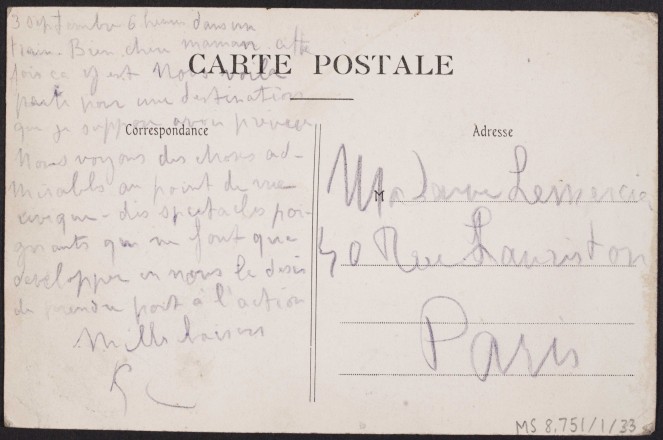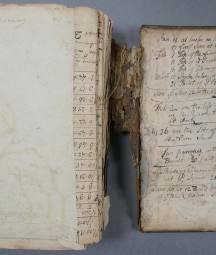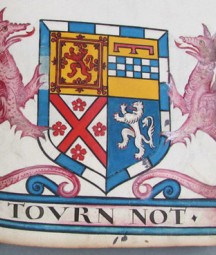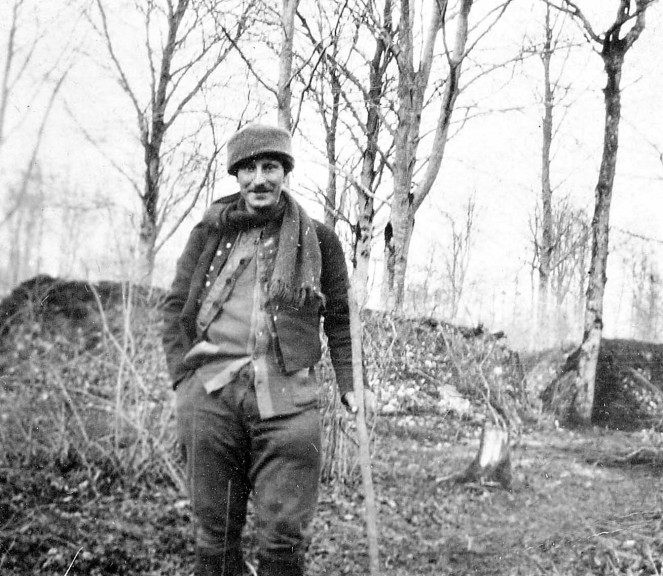
Eugene Lemercier
French painter Eugène Emmanuel Lemercier is not remembered primarily for his artistic work. Rather, his name evokes the vibrant correspondence he sent from the western front to his beloved mother in Paris, between August 1914 and his death in April 1915.
This unique collection of wartime correspondence is preserved in the National Library of Ireland and available for the first time for consultation on the Library’s website: See http://catalogue.nli.ie/Collection/vtls000537414
Eugène Lemercier’s grandmother was the Dublin-born portrait painter Harriet Osborne O’Hagan, who settled in Paris in the late 1860s. Her daughter, Marguerite O’Hagan, also became a painter. Her husband Eugène-Augustin Lemercier died before the birth of their son, Eugène, in Paris in 1886.
At fifteen Eugène entered the prestigious Ecole des Beaux-Arts to train as a painter. His studies were interrupted in 1906 by his military service in Chalons-sur-Marne, west of Paris, where he joined the 106th regiment of infantry. All young men in France had to do a two-year period of compulsory military training. As there were dispensations for higher education students, Eugène’s military service only lasted a year.
Between 1906 and 1914 he won several government prizes for his paintings, including ‘La Contemplation’. Eugène was starting on his next painting when he was drafted into the French army at the outbreak of the First World War in August 1914.
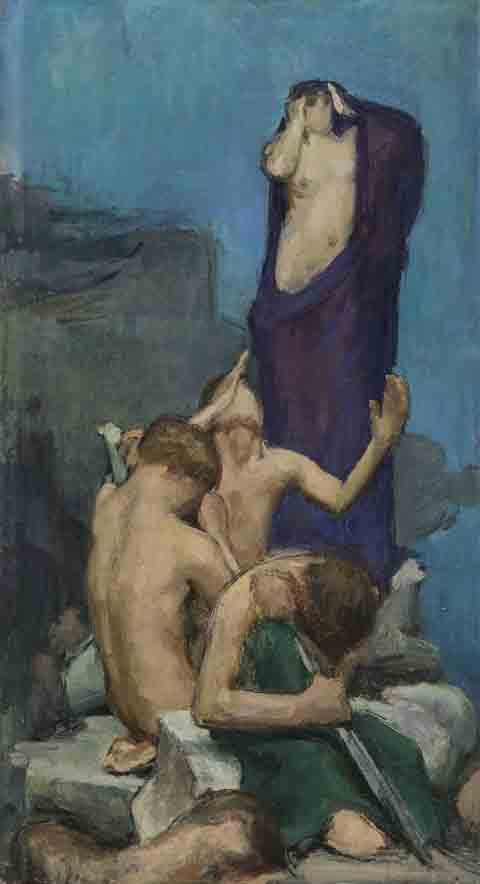
La Contemplation
From 4 August 1914 until 6 April 1915, Eugène Lemercier wrote to his mother Marguerite nearly every day, sometimes several times a day. He also corresponded with his grandmother and, at least during the first few months of the war, to a network of other faithful friends.
Between September and October, while thrown into what he called ‘the zone of the horrors’, no correspondence reached him and he confided in a small diary. Lermercier’s writings, preserved in the National Library of Ireland, constitute the testimony of a witness of the Great War.
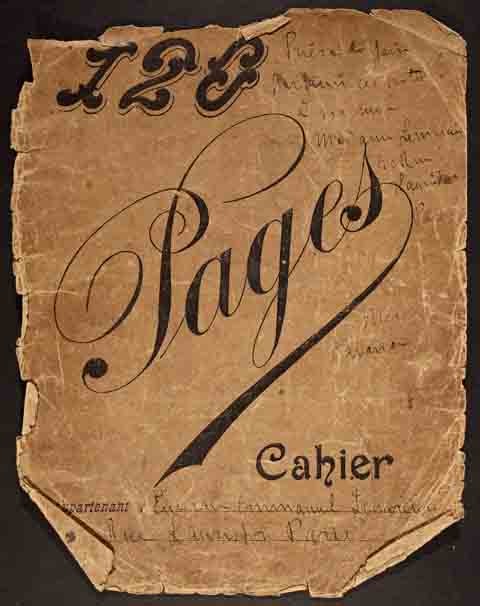
Front page of Lemercier notebook.
Eugène’s first letters were sent from the administrative depot of his regiment in Chalons-sur-Marne, where soldiers were waiting to be sent to the western front. In September he was stationed south of Verdun, at Les Éparges
Very soon Lemercier became part of the military roster, usually following a nine days rotation system. The first three days were spent at the front line, be it in the trenches or the mine galleries. The next three days were spent at the second line, in the woods; finally, the last three days of the roster were spent resting, billeted within the local civilian population.
Lemercier wrote about the war as he saw and felt it. He poured out his soul entirely to his mother, who became his sole reason to survive. He often discussed art works, books, religion and music with her in his letters. He described the landscapes as well - so the flow of the correspondence feels like a conversation with a close friend.
Lemercier gave details of his daily life: how soldiers exchanged clothing and what the chores were. He mentioned his companions and superiors, sometimes praising their courage and kindness, sometimes feeling incapable of communicating with them. He also described the sufferings of civilians.
He conveyed the horrors around him in a simple and evocative language: the smell of decomposing corpses, the bayonet attacks, the muddy trenches, the cruel lack of sleep. But beyond the factual account of the war, also emerges the sensibility of a man that was completely unprepared for the terror of conflict. He even described his very first battle saying that he felt more like a ‘war correspondent’ at that point. He wrote poetry, often in the form of prayers. The other thread that runs through all this correspondence is his closeness to and boundless love for his mother – writing freely to her was his lifeline. His writings provide an insight into the coping mechanisms soldiers developed. His insight and literary skill make his a fascinating account that offers many avenues of research. While his letters echo some of the themes brought up in other war writings, his individual experience, as an artist and a man versed in philosophy, sets him apart.
In April 1915, Les Éparges was the scene of one of the fiercest battles of the war. Eugène Lemercier disappeared during the course of the battle, on 6 April 1915. His body was never recovered.
Perhaps the most striking feature of Lemercier’s letters is the hope of what was to come after the war, what lesson could be learnt. He expressed his vision of the ‘United-States of Europe’ that would rise in the aftermath of the war, an idea that was taken up by French foreign minister Aristide Briand and Winston Churchill. Lemercier’s wisdom is timeless – though it was also very specific in coming to terms with the problems that Europe faced at the time – and demonstrates his uncommon generosity of spirit. His words are relevant to all facing uncertainty, and will resonate for a long time to come: ‘Let us eat and drink to all that is eternal for tomorrow we die to all that is human’.
